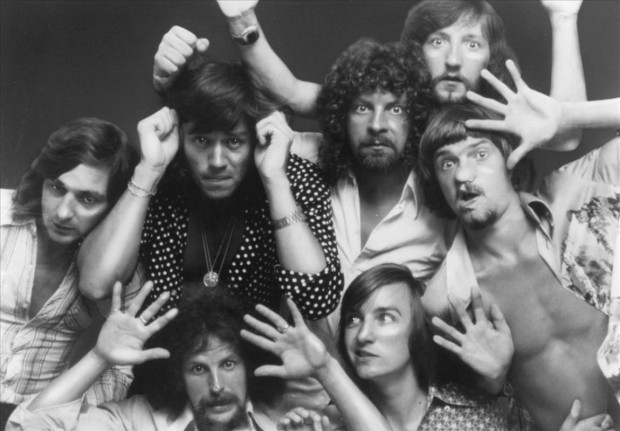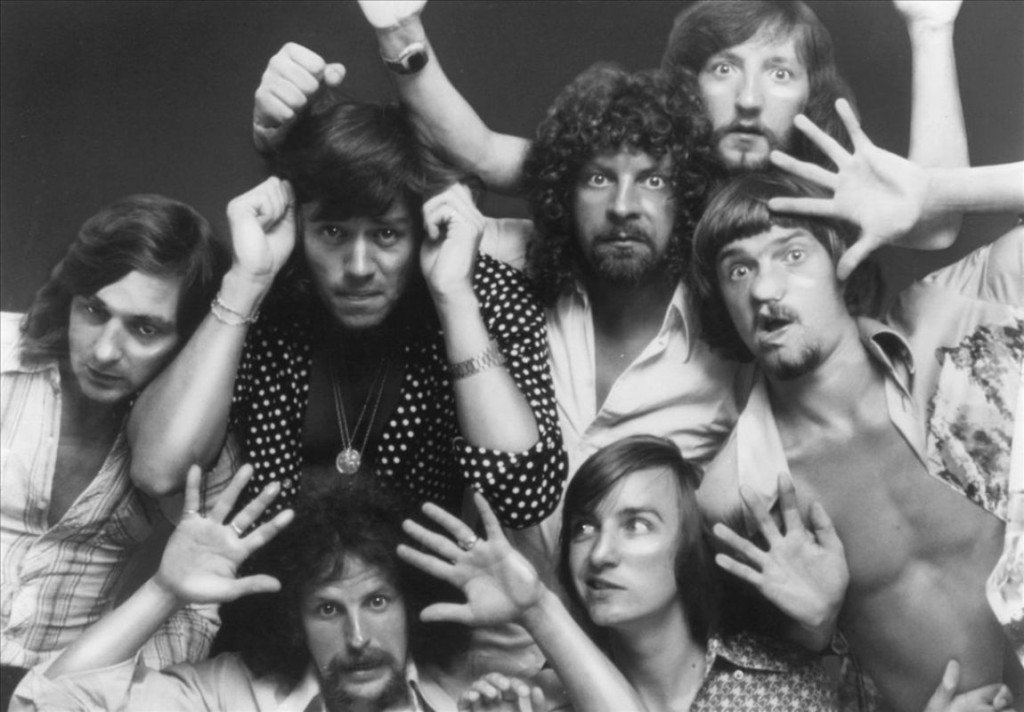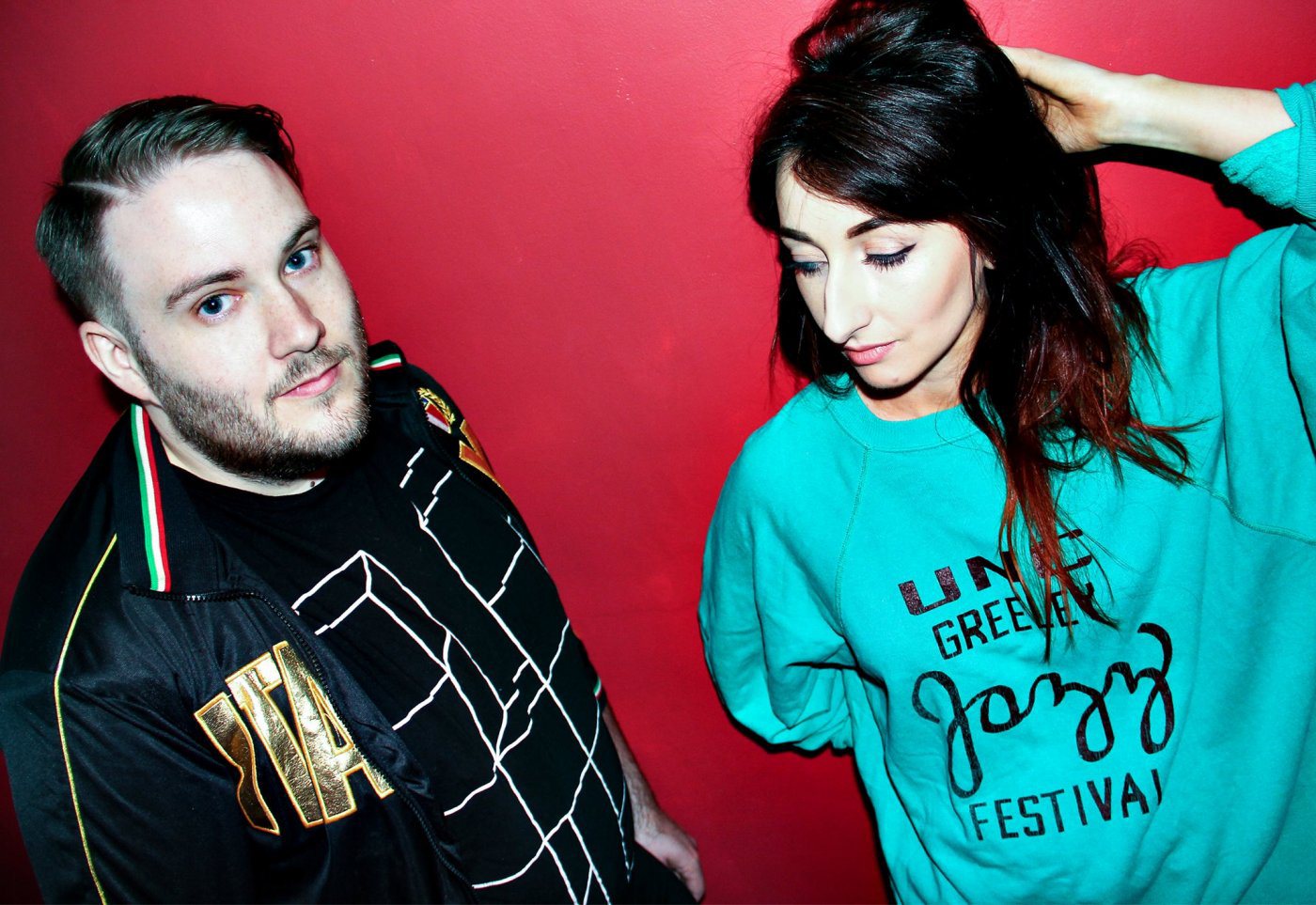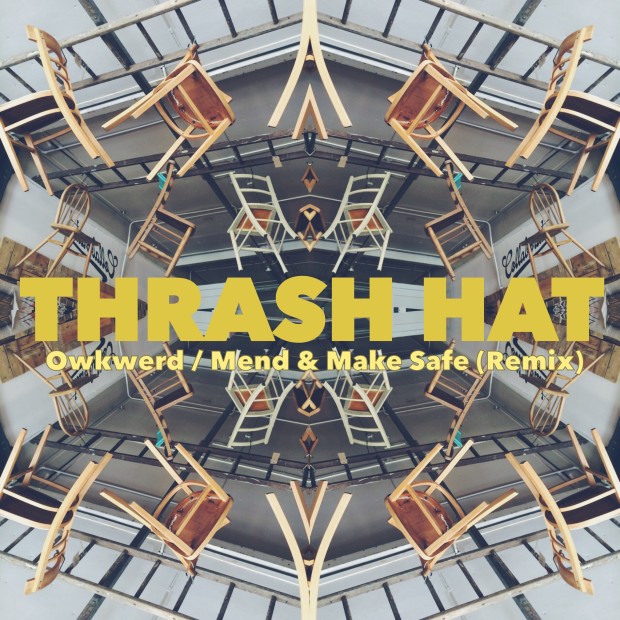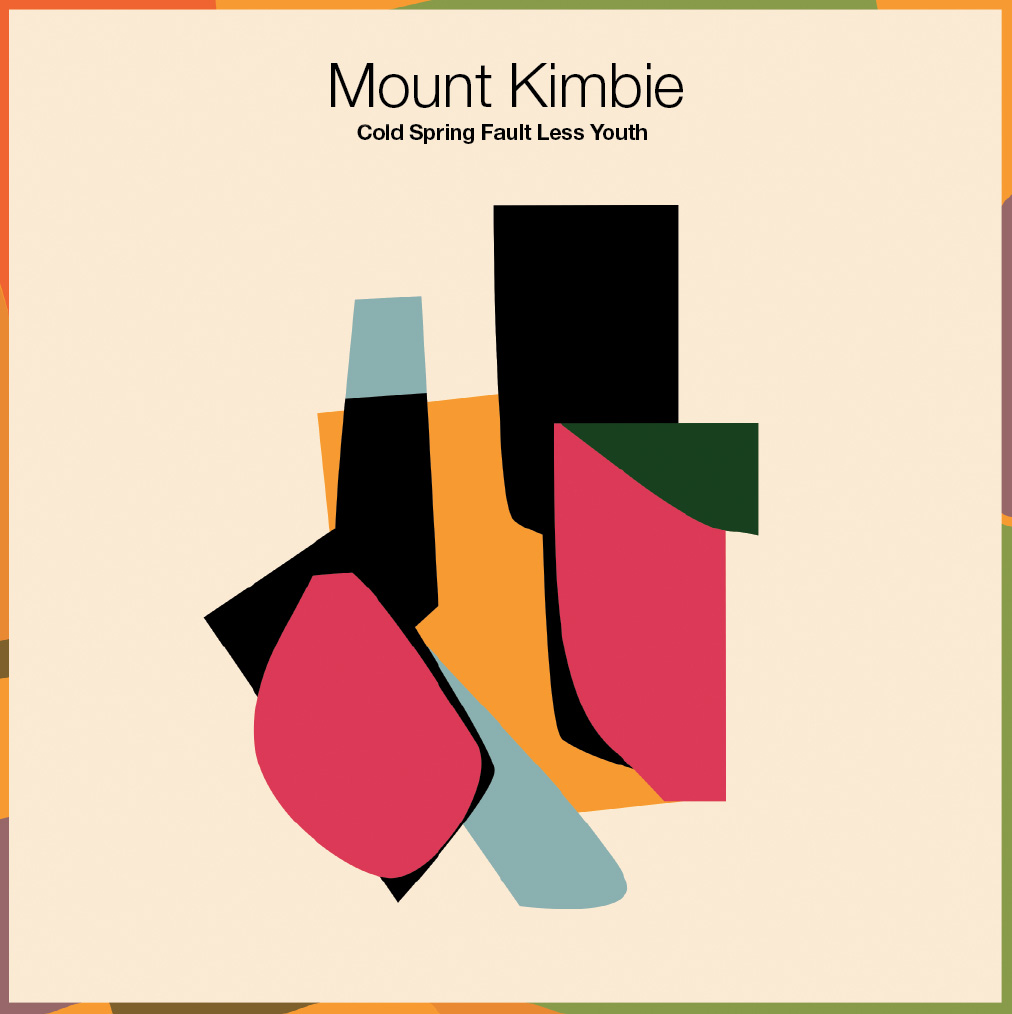In the annals of rock history, it’s unlikely that there’s any band less cool than ELO. Ignorant of stylistic trends, they started out uncool, and remained ever so. But behind the fuzzy hair, black shirts, and sunglasses of Jeff Lynne, there lies a creative pop mastermind, and a resolute quest to finish what the Beatles started. For something it’s easy to laugh at, ELO always treated pop like it was very serious business indeed.
When The Beatles finally called it a day in 1970, it left an impact that we’re still coming to terms with today. More so than Elvis, Buddy Holly or Frank Sinatra, the Fab Four created a blueprint for modern music that we still largely subscribe to today, whether we know it or not. They were a group, rather than a solo artist. They were autonomous, rather than being manufactured. They broke rules, rather than adhering to them. And in the eight years they released music, they set a standard which remains impressive, an artistic evolution that is still the benchmark by which other groups are measured.
But on a cultural level, the split of The Beatles is a wound that refuses to heal. Like breaking up with a first lover, or experiencing death for the first time, their end showed the world that this incredible new thing called ‘pop music’ could be fallible. For all their god-like achievements, The Beatles were still just four young men, ruled and governed by the same petty passions and neurosis that affect young men all over the world. When they fell apart squabbling, there was a sense of injustice that it should have such a mundane climax. If we were to re-write their story, it should end with John, Paul, George, and Ringo ascending to another plane of existence, having shown the world how to live and love in peace. It would probably be like that scene in Bill & Ted’s Excellent Adventure where Wyld Stallyns unexpectedly usher in a new age, minus the robes and sunglasses.
Jeff Lynne has worn plenty of sunglasses, but – to the best of my knowledge – has left the robes alone for the time being. That’s the kind of thing tended to be territory of his former bandmate, Roy Wood. The pair came together in Birmingham in 1970, the same year The Beatles left us. Wood had previously enjoyed success with The Move, whose hit ‘Flowers in the Rain’ had been the first song played on BBC Radio 1. With psychedelia in quick danger of becoming old hat, Wood formed a new band, with the new theme of incorporating classical music, in an attempt to “Pick up where The Beatles left off.” As fellow Brummies Black Sabbath began their journey to the dark side, the newly formed Electric Light Orchestra embraced something brighter.
The band’s first song, ‘105380 Overture’ is a curious beast, clashing mess of styles, with a brooding guitar figure at the heart, one which would be plundered by Paul Weller for the main riff of ‘Changingman’, 25 years later. Slashing cellos assault the listener from both sides, bringing to mind the swirling musical kaleidoscope of The Beatles, only with the sunshine of the Summer of Love replaced by chaos and confusion. It’s a pretty spectacular opener, melodic and abrasive in equal measures.
But Roy Wood, the originator of most of the band’s material, split from the band in 1972, with the old chestnut of ‘musical differences’ rearing its head again. Despite having enjoyed a degree of success on both sides of the Atlantic, critics predicted that the smart money would be on Wood, whose new band, Wizzard, fully embraced the glam scene of the time. And whilst Wizzard scored big on the Christmas singles charts, they struggled to maintain any sense of commercial momentum. Lynne, on the other hand, was about to take ELO into the stratosphere.
American audiences had taken to the band’s melding of Beatle-esque melody and classical stylings, and on their fourth album Eldorado – A Symphony by the Electric Light Orchestra, Lynne’s ambition matched up with a commercial sensibility, transforming the band from an interesting curio, to genuine chart contenders. Singles like ‘Can’t Get it Out of My Head’ and ‘Boy Blue’ had a lush quality to them, hours and hours of studio work clearly on display, whilst the vocal melodies would clearly identify them as heirs to The Beatles’ throne. Even John Lennon was impressed, describing the band as “The Sons of The Beatles.” And thus kicked off an incredible run of hit singles that are evergreen radio hits to this very day: ‘Showdown’, ‘Evil Woman’, ‘Telephone Lie’, and, of course, ‘Mr Blue Sky’.
But whilst the money and the hits rolled in, critical acclaim plummeted in equal measure. Put simply, something about ELO was inescapably naff, and in a world based on cool and style, it’s a miracle they got by as well as they did. With his afro, beard, and ever-present sunglasses, Lynne was not a classic rock star in the mould of Bowie, Jagger, or Plant. And unlike the world-straddling rock bands of the era, ELO were not a band of brothers, united on a mission. Jeff Lynne was, to all extents and purposes, the band, and the musicians were just something he needed to get the work done.
But as glam slipped away, to eventually be replaced by punk as one of the sounds of mainstream pop, ELO remained resolutely unchanged, with their shaggy hair, cellos, and Beatles knock-offs. Back in 1970, the break-up of The Beatles had torn a hole in the fabric of popular music, their epoch shaping journey left hanging in the air. ELO had come along at the right moment, reminding audiences that the possibilities posed by The Beatles were still very much alive. By 1979, with a new decade dawning, and the punk hordes assaulting the charts, Lynne & Co were singing, ‘Don’t Bring Me Down’ over a heavy disco beat, scoring bigger hits than ever, but looking like they’d left the real world far behind, strapped to the massive neon space-ship that doubled as their stage show.
By the mid-80s, after reaching a commercial plateau that few bands could ever dream of, ELO called it a day. Their neon-plated jukebox space ship had flown as high as it could go, and Lynne found himself in the middle of a new era, wondering what to do next. An offer from George Harrison to accompany him on his Cloud Nine album would bring Lynne one step closer to his beloved Beatles, a journey that reached its apotheosis when he effectively joined the band when working on the Anthology series to help produce two ‘new’ songs, ‘Free as a Bird’ and ‘Real Love’. The fact that they sound more like ELO than The Beatles is a testament to the strength of the vision he has clung to for over four decades.
Jeff Lynne has produced records by the likes of Tom Petty, Roy Orbison, and Brian Wilson, not to mention Paul McCartney and Ringo Starr, and was a member of the Travelling Wilburys, alongside Orbison, Petty, Harrison, and Bob Dylan. His place in rock history is secure. But somehow, there’s still a slight hesitance when elevating ELO to the pantheon of the Gods, something at the back of our minds telling us to hold back. They were one of the most commercially successful bands of their era, and yet this pop success was never at the cost of ambition, with many of the band’s most successful singles having parent albums which deal in sci-fi concepts, or orchestral overtures. Hell, they even ended up being sampled by the likes of Daft Punk, J. Dilla, and the Pussycat Dolls.
But none of this makes them cool, and maybe it has something to do with that inability to grasp the present, a backward looking sensibility that has always kept ELO curiously out of kilter with the rest of the world. Back in 1970, Jeff Lynne and Roy Wood wanted to keep the Beatles alive, and as the years go by, this is all ELO manage to do, without ever really adding anything new to the formula. Disco is touched upon, prog rock is brushed against, and electronics make appearances, but deep down, the overwhelming notion is of the chugging guitar on ‘Sgt. Pepper’s Lonely Hearts Club Band’, of the churning phased cello on ‘I am the Walrus’, of the chirping horns of ‘Penny Lane’, and of the stomping 12-bar blues of ‘Revolution’. And despite having a back catalogue that most bands would kill for, it’s unlikely you’d find many of today’s struggling hitmakers wanting to jump into Jeff Lynne’s black silk shirt and pants.
Since the mid-70s, pop has been concerned with that nebulous concept of ‘relevance’, and right from the word go, this is something ELO have been sitting a country mile from. So, thusly, they ain’t cool. As some of their contemporaries continue to have a lifespan long after they’ve split up, or in some cases, died, ELO remain stuck in their imagined era, in love with The Beatles, and oblivious to the world.
No matter though, and as Lynne prepares to take his music back to the stage, perhaps contemporary audiences can throw caution to the wind, embracing this startling back catalogue for what it is – a collection of incredibly well written songs, played for the sheer hell of it. After all, even The Beatles couldn’t handle being The Beatles, so it seems churlish to criticise Jeff Lynne for failing in that regard. Some crosses are too heavy to bear. Steven Rainey
Jeff Lynne’s ELO play Dublin’s 3Arena on April 29.

